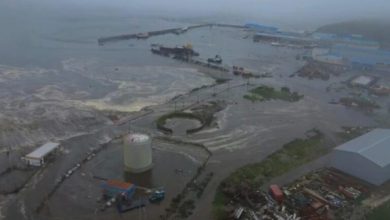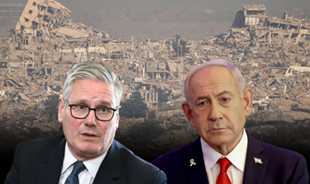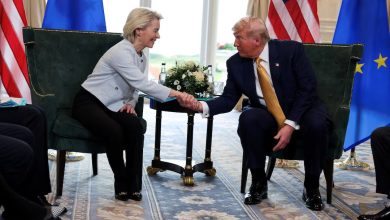Inside Israel’s Covert Strike: How Mossad Undermined Iran From Within
Mossad’s deep-cover agents struck from inside Iran before Israel’s air assault, sabotaging defenses and paving the way for airstrikes.
Covert drone attacks and assassinations highlight years of infiltration, exposing Iran’s security gaps as tensions escalate into open warfare.
Before Israel unleashed a massive and coordinated air assault on Iranian nuclear sites and top military figures this week, its secret agents were already deep inside Iran, laying the groundwork.

According to Israeli security sources, the Mossad the country’s renowned intelligence agency smuggled advanced weapons into Iranian territory well ahead of the strikes. These weapons weren’t just symbolic. They were deployed in precision operations that disrupted Iranian defenses from within, striking air defense systems and missile launchers near Tehran.
In one bold move, Israel reportedly established a hidden base inside Iran to launch explosive-laden drones. These drones were later used to hit strategic missile infrastructure near populated areas, softening targets for what became a massive Israeli air campaign involving over 200 aircraft and more than 100 separate strikes in a single night.
The initial wave of attacks appeared to be successful. Israeli officials confirmed that all aircraft involved returned safely, suggesting not only a well-executed military strategy but also a significant intelligence advantage over Iran’s internal defense network.
Mossad’s contribution didn’t stop at logistical support. Intelligence gathered from inside Iran gave Israel’s air force the ability to locate and strike high-value Iranian commanders and nuclear scientists. In a rare move, Mossad even released video footage showing drones destroying missile launchers, highlighting the depth of its reach.
Analysts say this latest wave of covert operations is just another example of how deeply Mossad has infiltrated Iran’s most sensitive military and scientific programs. Holly Dagres, a senior fellow at the Washington Institute, remarked, “Mossad has treated Iran like its playground for years. From sabotaging nuclear plants to eliminating top scientists, Israel has consistently held the upper hand in this ongoing shadow conflict.”
The scale of the most recent mission was enormous. Israeli sources revealed that Mossad commandos operated in multiple regions across Iran including the capital, Tehran undetected. Their mission: to neutralize Iran’s air defenses just as the Israeli Air Force was preparing to strike. Some commandos planted precision-guided explosives close to surface-to-air missile systems. Others used mobile platforms to launch attacks on additional military assets. These tactical strikes were designed to pave the way for Israel’s aerial offensive, ensuring minimal resistance from Iranian forces.
Some Mossad teams had been embedded inside Iran for years, slowly gathering intelligence and waiting for the right moment to act. Their presence reportedly extended into highly secured areas of Tehran. A video shared with international media appeared to show a one-way drone hitting a missile platform, underscoring how intimately Mossad operatives understood their targets.
In addition to dismantling Iran’s military infrastructure, Mossad also carried out targeted killings. These assassinations many of them previously denied or unclaimed are now being acknowledged as part of a broader Israeli campaign to cripple Iran’s nuclear ambitions.
Iran’s nuclear program has long been in Mossad’s crosshairs. Between 2007 and 2012, several Iranian nuclear scientists were killed in a string of mysterious attacks, many in Tehran. Remote-controlled bombs and automatic weapons were often used, with only one known survivor, Fereydoon Abbasi. Former Israeli Defense Minister Moshe Ya’alon hinted at these operations in 2015, saying Israel couldn’t be blamed for “the life expectancy of Iran’s nuclear scientists.”
Ironically, Abbasi was among the casualties in the latest round of Israeli strikes.
Israel’s covert campaign came out of the shadows in 2018 when it unveiled an intelligence haul of epic proportions: Mossad operatives had stolen Iran’s secret nuclear archive from the heart of Tehran. Then-Prime Minister Benjamin Netanyahu revealed 55,000 documents and digital files during a televised presentation. The operation shocked Iranian authorities and helped convince the Trump administration to pull out of the nuclear deal known as the Joint Comprehensive Plan of Action (JCPOA).
The attacks continued. In 2020, top Iranian nuclear scientist Mohsen Fakhrizadeh was assassinated while traveling with his security convoy outside Tehran. Reports said he was killed by a remote-controlled machine gun. Although Israel has never officially claimed responsibility, it has also never denied involvement.
The operation demonstrated not only Mossad’s technological capabilities but also its precise knowledge of Fakhrizadeh’s movements and security details.
Despite repeated security lapses, Iran has struggled to improve its internal counterintelligence. Ram Ben Barak, former Mossad deputy director, attributed the agency’s success to both its skilled personnel and the widespread public discontent within Iran. “This kind of environment allows for intelligence breakthroughs,” he explained. “The regime is deeply unpopular, and that gives us an edge.”
One of the boldest operations attributed to Israel occurred shortly after the war in Gaza reignited tensions. Mossad allegedly assassinated senior Hamas figure Ismail Haniyeh in central Tehran. The explosive used in the attack had reportedly been planted inside a guesthouse room months in advance and was detonated remotely when Haniyeh arrived.
Through it all, Israel has demonstrated not just military power, but a long-standing and highly effective intelligence strategy that operates well within enemy lines. While Iran continues to issue threats and rally regional support, its internal vulnerabilities exposed repeatedly by Mossad raise serious questions about how secure its leadership and military truly are.



